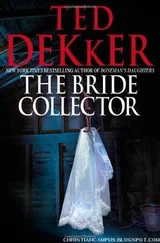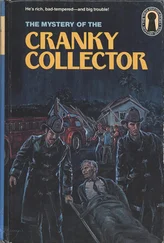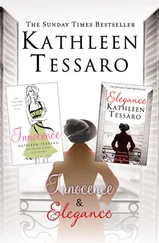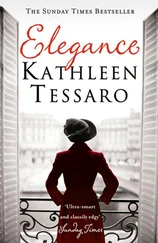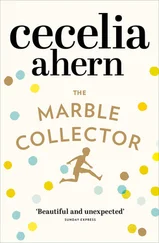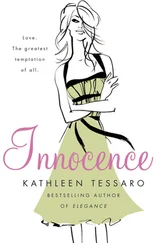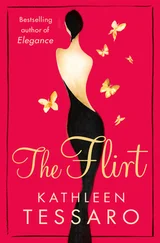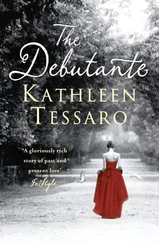Instinctively, Eva averted her eyes, focusing instead on tying the apron around Grace’s waist.
Lady Catherine was an attractive woman, older than Eva, with a natural hauteur and authority. Her voice was slightly breathy, giving her a rather harried, uncertain energy, and her accent snapped with the crisp consonants and flatly drawled vowels of the upper classes. Her fine auburn hair was styled away from her face and her features echoed Lambert’s with disarming accuracy; her brother’s ghost could be seen in the same wide forehead and startling azure eyes.
‘What a journey! The station was packed,’ Catherine complained. ‘What are you doing?’
‘We’re making black biscuits for Daddy,’ Grace announced.
‘Black biscuits!’ Catherine tossed an evening edition of the newspaper down on the table, along with her gloves. ‘Is this a joke?’
She looked over at Eva, who forced the corners of her mouth up into a smile. ‘No, ma’am. They have a small amount charcoal in them, which aids digestion and gives them their colour. They are very popular in France.’
‘Oh dear!’ Catherine shook her head. ‘What will they think of next?’ She reached out and stroked the head of the family dog, Fry, a mixed breed of wolfhound and retriever. ‘And where is your father?’
‘Daddy’s in the greenhouse, of course,’ Grace offered, as Lena pulled up a stool for her to stand on.
‘Yes, of course,’ Catherine sighed.
Jonathan Maudley was, in fact, rarely out of the greenhouse. Though it was nearly the size of the main house already, he’d built an extension onto it recently which housed a laboratory and office, from which he conducted his research for a major pharmaceutical company. It was one of the reasons they didn’t live in the Great Hall. He could be found there, often before sunrise until late in the evening, deeply involved in experiments, piled in notes. His considerable collection of plant specimens were fastidiously attended to by him alone and kept under lock and key. It was his private domain, strictly off limits.
‘I wonder why I bother asking,’ Catherine added, wandering over to the back door and looking out of the window. ‘Lena, don’t let that washing sit too long on the line. I don’t want my blue dress bleached out by the sun.’
‘Yes, ma’am.’
She turned. ‘I take it we’re having chicken for supper?’
Eva nodded.
‘Lovely. Can you make ordinary boiled potatoes, please? That last dish you made…’ she paused, searching for the name.
‘ Le gratin ?’
‘Yes. Very nice but I swear, Lena, it had garlic in it.’ Catherine shot her a reproachful look. ‘One cannot go about in public places smelling like a foreign sailor. I was mortified in case someone sat next to me on the train or in the library. Has the post arrived? I’m waiting for a letter from a publisher.’
‘It’s on the table in the front hallway, ma’am.’
‘Good. Well, my darling,’ she turned to Grace, ‘I was going to ask you if you wanted to walk the dog with me.’
Grace hesitated.
‘Darling,’ Lady Catherine’s smile faded, ‘you don’t want me to go by myself, do you?’
‘No, Mummy. It’s just—’
‘Lena can make the biscuits.’ She held out her hand. ‘God knows, you’ve spent all day together!’ She snapped her fingers impatiently. ‘Now, come along!’
Climbing off the stool, Grace tugged at the apron ties; it slid down to the floor.
‘Of course, Mummy,’ she took her mother’s hand.
‘Lena, have a look at those gloves, please, will you? The fingertips are quite filthy from the train. White gloves really ought to be white, don’t you think?’ Catherine gave her daughter’s palm a squeeze. ‘Let’s run some fat off this old boy, shall we? We’ll be back before supper,’ she called as they climbed the stairs, Fry at their heels.
Eva stood, very still, in the empty kitchen.
Then she picked up the apron from the floor and hung it back again on the hook by the back door.
Moving mechanically, she took out the flour and sugar from the pantry; butter, salt, a mixing bowl.
She tossed some flour onto the counter and spread it smooth, took out the rolling pin.
Reaching deep into one of the kitchen drawers for a biscuit cutter, she found one in the shape of a small oval, made of tin.
She stopped… ran her finger along the sharp, delicately serrated metal edge.
Eva put the cutter down on the counter and pressed her palm into it, hard.
The sensation was exquisite and excruciating. Feeling flooded in. And the pressure valve in her head loosened, easing just the tiniest bit.
She closed her eyes.
There was a whole vocabulary of suffering, eloquent in its wordlessness, which gave voice to all the things she couldn’t do or say.
Opening her eyes, she forced her hand into a fist, stretching out her fingers again and again. Then she turned to get the milk.
Jonathan Maudley was standing, watching in the doorway.
He leaned awkwardly against the door frame.
Tall and very thin it was clear that at one time he’d been handsome. With large blue eyes, a high, intelligent forehead and a firm jaw, he might have been the very model of well-bred English manhood. Only now his eyes were ringed with deep bluey circles, the result of years of nightmares and fragmented sleep; his sandy blond hair had thinned, his cheeks were hollowed and his lips drawn. His large hands were expressive and elegant. They should have been the hands of a gentleman or a diplomat, only now the long tapered fingers were stained with nicotine from too many cheap roll-ups, a habit he’d acquired in the trenches and failed to give up, and the fingernails rimmed with black soil.
Upstairs the front door closed; Catherine and Grace had left.
Down here, the low ceiling of the kitchen pressed in on them, trapping the heat of the oven, the air warm and moist. A cloud passed over the sun; the room fell into shadow.
Eva reached for the milk. The pain that a minute ago had been a release was now an obstacle. She poured a little into the bowl, mixing the ingredients together, methodically.
She felt his eyes following her movements.
‘You’ve hurt yourself,’ he said.
Eva looked up.
The veil dropped from his features; gone was the public face of a distracted intellectual. Suddenly she saw in him a comprehension of loss that was terrible to behold.
Unnerved, she turned away.
When next she looked round, he was gone.
There had been no plan. The idea had begun with a simple wish; just to see her daughter.
Three years earlier, after Lambert’s death, a letter had arrived. And for the first time, Eva knew where her daughter lived; knew her name.
But when she looked up the address Lambert had given her, her hopes plummeted. The Great Hall, West Challow, Oxfordshire was no ordinary home. In fact, she found an etching of it in a library book entitled The Stately Homes of England . Her child was living on an estate, surrounded by thousands of acres, the legal daughter of landed aristocracy. Eva wouldn’t be able to even gain access to the grounds, let alone her little girl.
Still, she paid a considerable amount to see a well-known lawyer, hoping he could offer advice. Instead, he dismissed her claim completely. ‘You have no proof,’ he interrupted her, halfway through her explanation. ‘If you are the child’s mother,’ he gave her a look that made it clear he seriously doubted it, ‘then why would you remove her from a life of privilege and opportunity? From what you’ve told me, she’ll have a social position, possibly an inheritance… . am I mistaken? What kind of parent would wish to destroy their child’s chances in this world simply to satisfy their curiosity?’
Читать дальше
Конец ознакомительного отрывка
Купить книгу



